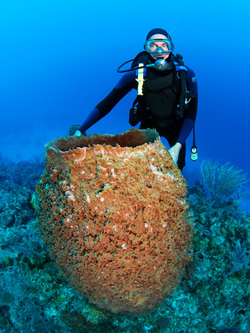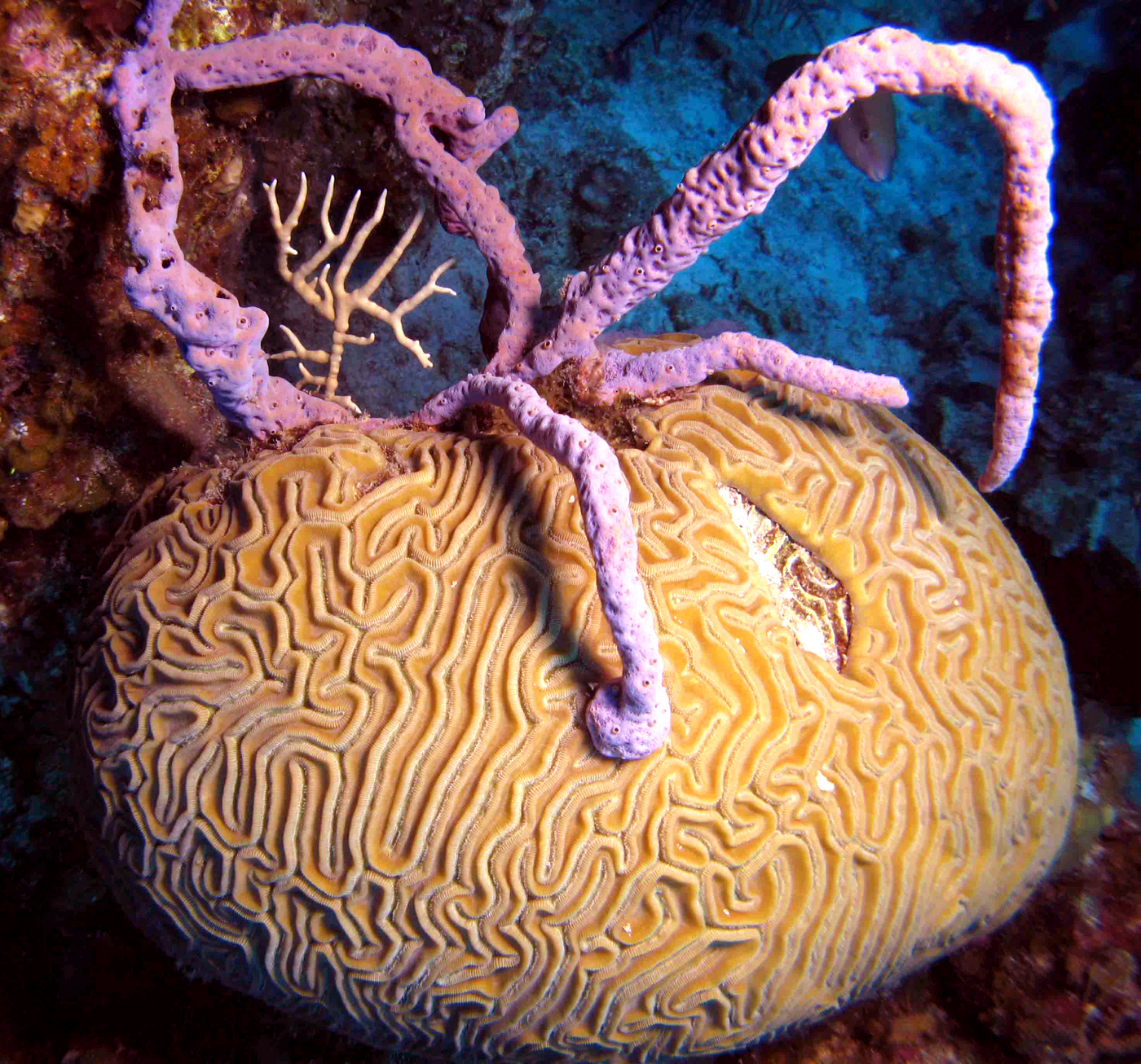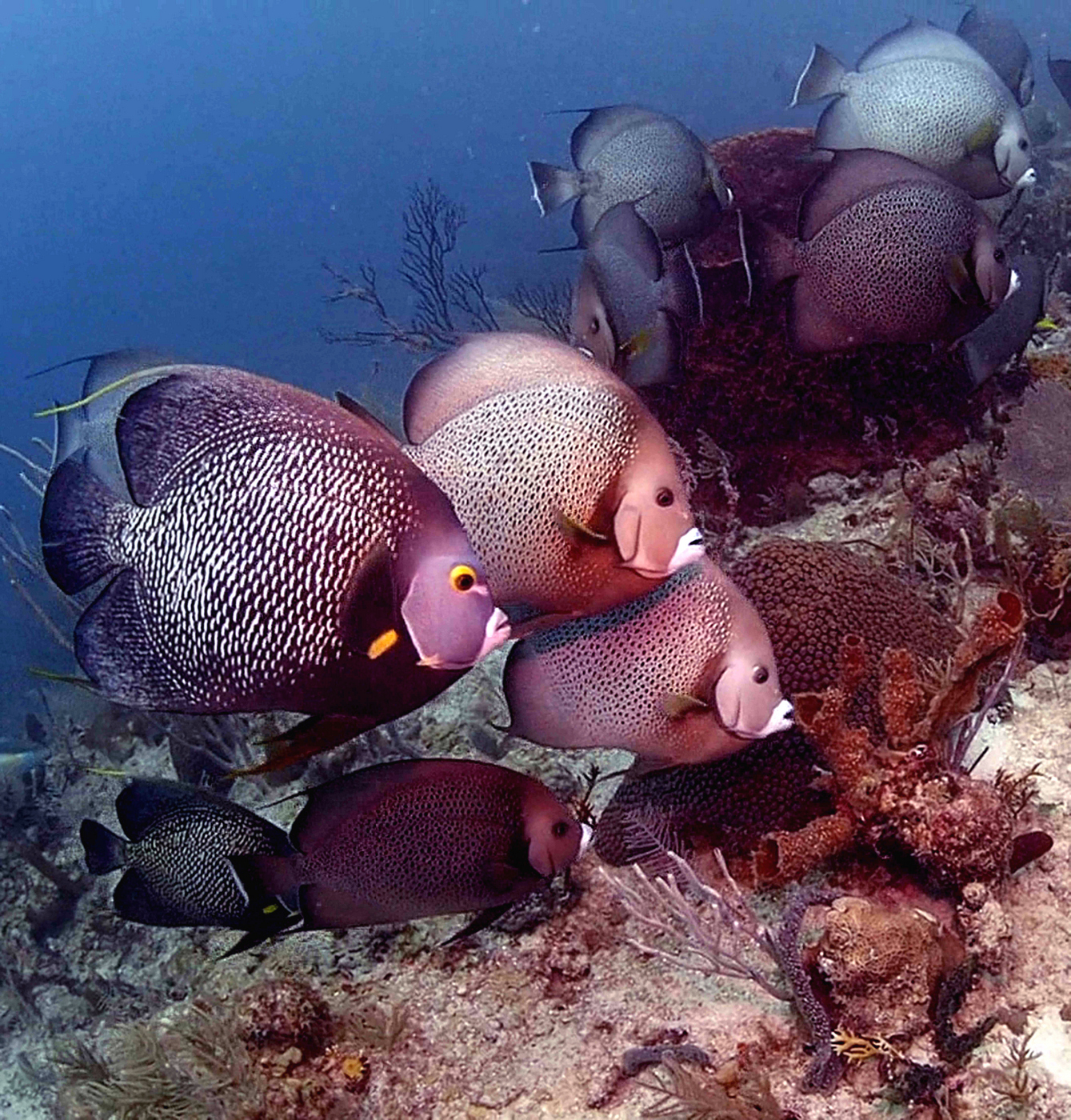We recently published “Indirect effects of overfishing on Caribbean reefs: sponges overgrow reef-building corals”. In this study, author Joseph Pawlik, and his colleagues examined the indirect effects of overfishing on coral reefs.
Joseph comments on his research and experience publishing with us.

Joseph Pawlik
PJ: Can you tell us a bit about yourself?
JP: I’m an invertebrate biologist and ecologist who specializes in marine chemical ecology, so I collaborate with organic chemists to characterize the ecological functions of secondary metabolites (unusual chemical compounds) in the tissues of marine organisms. Marine sponges are a particularly good group to study, because they have been the single best source of new organic compounds among marine animals and plants.

Brain coral (Diploria labyrinthiformis) overgrown and smothered by the lavender branching sponge Aplysina cauliformis.
Photo credit: Joseph Pawlik, UNCW. CC BY 4.0.
PJ: Can you briefly explain the research you published in PeerJ?
JP: We surveyed coral reefs across the Caribbean to examine the relationship between the presence of sponge-eating fishes and the interaction between sponges and corals. We found that overfished reefs have >3 times the number of incidences of sponges overgrowing corals as less-fished reefs.
PJ: What surprised you the most with these results?
There was a big surprise when we analyzed the data, but not related to the coral-sponge interaction. The surprise came when we looked at the seaweed cover across our sites, because there were more seaweeds at sites that were less-fished. This is contrary to conventional wisdom that seaweed-eating fishes control seaweeds on Caribbean reefs. But, nobody had previously done as wide-ranging a study as ours. Further, other recent, more localized, studies had yielded similar findings. PeerJ publishes the documents from the review process, and if you read them you will see that the 2nd reviewer was wary of the seaweed results. We revised the preprint to address them in the published paper, and the record of the review documents show the process.
PJ: What kinds of lessons do you hope the public takes away from the research?
Simple: if you want to save the corals that build coral reefs, protect the fish that eat sponges.

French and Gray angelfishes eating the tube sponge Callyspongia vaginalis.
Photo credit: Joseph Pawlik, UNCW. CC BY 4.0.
PJ: Where do you hope to go from here?
Many sponges are filled with microbial symbionts. We would like to study the importance of these symbionts within the context of our conceptual model of sponge ecology on Caribbean reefs. We would also like to know more about how different sponges feed themselves.
PJ: How did you first hear about PeerJ, and what persuaded you to submit to us?
I followed PeerJ from its inception, but was reluctant to try it until it had become more established, and had earned an Impact Factor with ISI. I was encouraged to use it by others who had had a good experience publishing there.
PJ: Do you have any anecdotes about your overall experience with us? Anything surprising?
An overall excellent experience, and much better than some of the awful experiences I’ve recently had with other journals that reject your paper without review or any consideration. I was surprised by the speed of review, by the cost, and most of all by the innovative publication of review documents.
PJ: How would you describe your experience of our submission/review process?
Rapid, fair and transparent. Really excellent.
PJ: Did you get any comments from your colleagues about your publication with PeerJ?
Yes, PeerJ did a terrific job of promoting our paper, and the response has been excellent. It has been picked-up by science media outlets and by social media.
PJ: Would you submit again, and would you recommend that your colleagues submit?
Yes to both questions.
PJ: In conclusion, how would you describe PeerJ in three words?
Fast, Fair and Transparent.
Join Joseph and thousands of other satisfied authors, and submit your next article to PeerJ.
